By Jackson Okata
Kitui, Kenya: In the heart of Kitui Central, a region characterized by the harsh embrace of aridity, the land bears the weight of a climate that often turns the soil to dust and leaves the air parched. This arid expanse, with its sporadic rainfall and relentless sun, challenges the resilience of the communities that call it home.
With scarce rainfall, the region is becoming a canvas where the struggle for sustenance unfolds against the backdrop of a relentless drought.
Here, the rhythm of life is dictated by the capricious dance of rain clouds that, more often than not, remain elusive. In this arid landscape, smallholder farmers like Regina Mutia once found themselves tethered to the unpredictable whims of the weather, relying on rain-fed agriculture as their lifeline.
The intermittent showers, or lack thereof, determined not just the growth of crops but the very rhythm of daily existence for families like Regina’s.
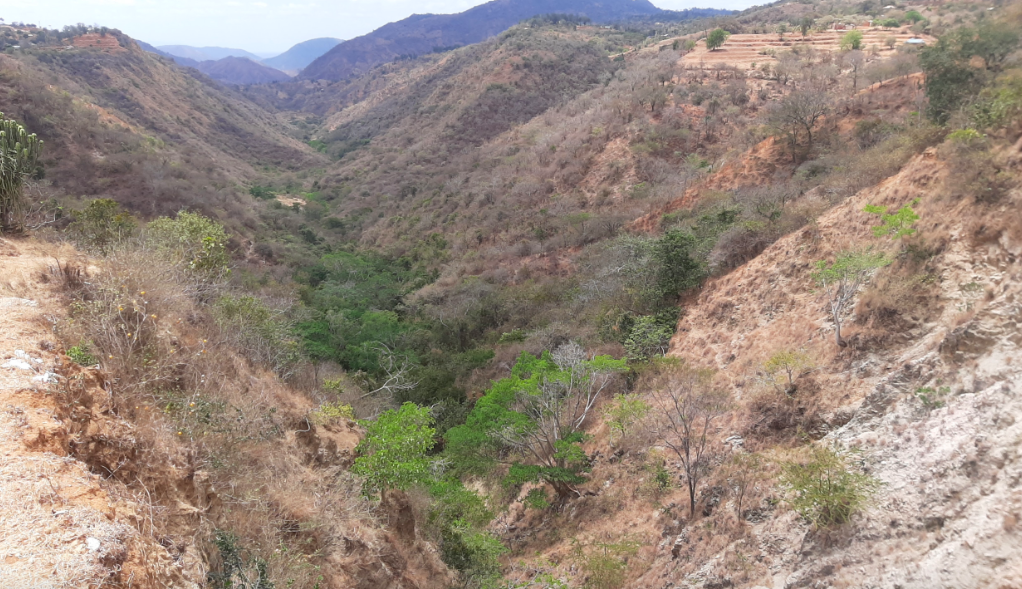
It is amidst this challenging backdrop that the story of Kitui Central unfolds—a narrative of resilience, adaptation, and a community’s quest to defy the odds imposed by nature. Just like Regina, smallholder farmers in the region heavily relied on rain-fed agriculture, which meant that, without rains, there was no food for the family.
“My small piece of land was my main source of income and I could only plant when the rains arrived. During the dry season, feeding the family was hectic and if there was no money to buy food, then it meant going without food’’ said Mutia.
Climate Change Crisis
Rural communities in arid and semi-arid areas of Kenya are the worst hit by the effects of climate change including prolonged droughts and perennial floods.
For Regina and many other women in Kitui Central, the effects of the climate crisis forced them to become innovative and creative as a way of adapting to the changing climate.
“We realized that over-reliance on rainfed farming was exposing us to many calamities and decided to try other farming options that can work even without rain and that is how we shifted to sustainable poultry farming’’ Mutia explains.
Armed with training from the Kitui Development Center(KDC), Mutia and her fellow women Under the Yike Wikwe(help yourself, to attract help) Self-Help Group shifted from rain-fed agriculture to sustainable poultry farming, a pragmatic response to climate challenges that to them became a catalyst for economic independence and food security.
Janet Mumo, Manager of the KDC, emphasizes that these resilient women are not merely addressing food insecurity but are also “unraveling hidden economic and social potential through their poultry project”.
Sustainable Food Systems
The Yike Wikwe women “are not only offering a solution to a long-running food insecurity problem but also unlocking hidden economic and social potential through the sustainable poultry farming project” says Mumo.
“The poultry project helped farmers to stop over-reliance on rain-fed agriculture. They raise chicken for food and as business sell chicken and eggs to fund other bills like school fees, healthcare and buying other food items also benefit from manure” adds Mumo.
Mutia who has 34 kienyeji birds, observes that apart from food security the project has helped members deal with the problem of domestic violence which was partly occasioned by women’s over-reliance on their husbands for provision
Jenipher Mutua, the chair of the 84-member Yike Wikwe women’s group, proudly attests to the project’s multifaceted impact. “The good thing about this project is that it has become a major source of income for the women,” she states.
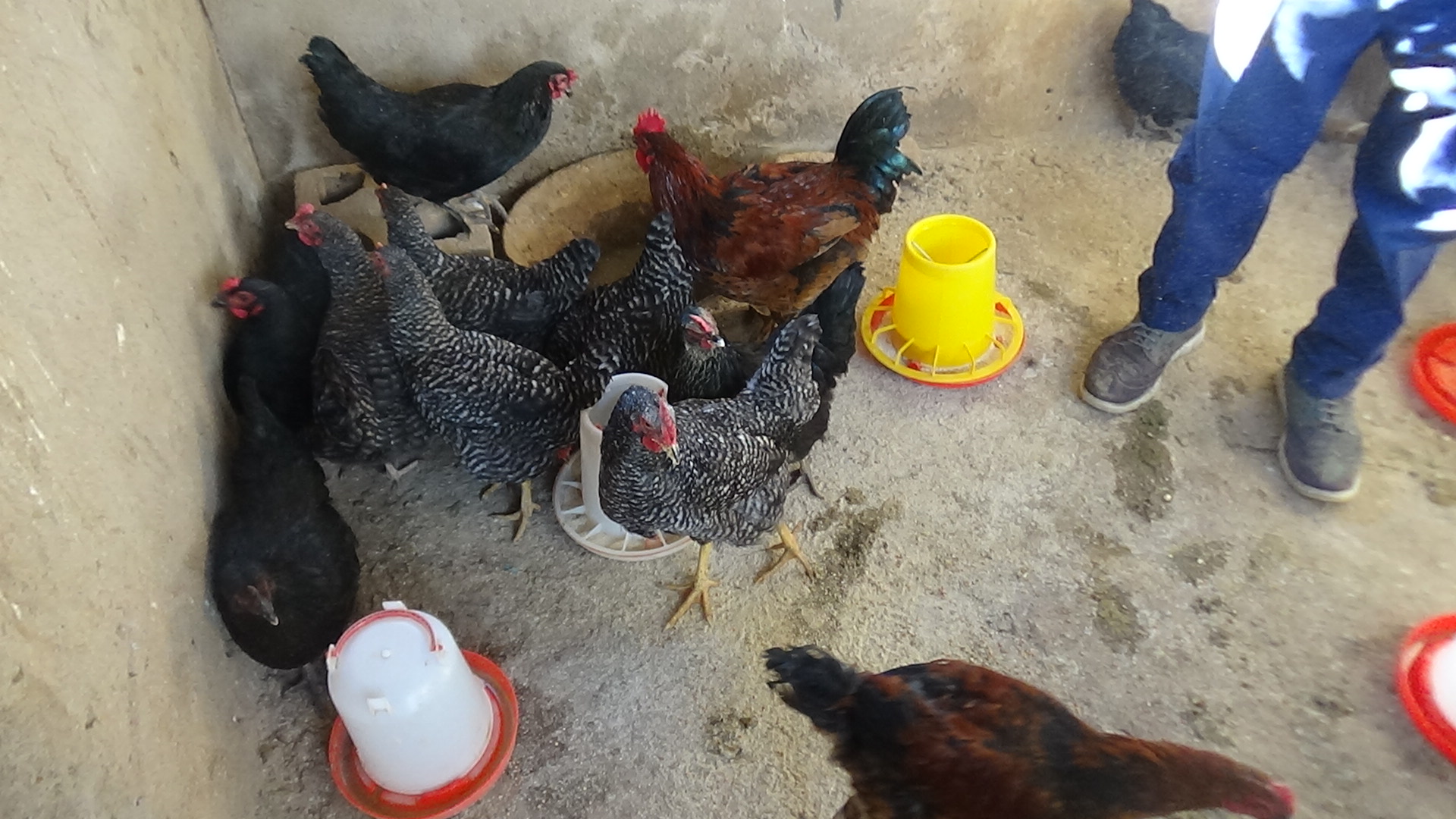
No longer tethered to the uncertainties of rain, these women have found stability in selling poultry products, enabling them to buy food, meet other financial obligations, and secure a future beyond the constraints of climate unpredictability.
Moreover, the Kitui Development Center’s (KDC) commitment to sustainable practices, from community-based trainers to efficient waste utilization, creates a model that not only preserves the environment but also safeguards the economic interests of the farmers.
Mumo notes that the cooperative ownership structure ensures that the profits generated stay within the community, contributing to a cycle of empowerment and economic resilience.
As Josephine Mutunga shares her experience, citing how the project helped her navigate financial pressures, it becomes evident that the benefits of sustainable poultry farming extend beyond the economic realm.
It serves as a cornerstone for nutrition security, funding education, and even combating domestic violence. The project’s comprehensive approach, from feed formulation to commercial ambitions, reflects a vision where the community not only survives but thrives.
“The cost of sustainable poultry farming is lower compared to normal farming which is labour and capital intensive,’’ says Mutunga.
For women like Mutunga, the project has helped them deal with minor financial pressures. “With this project, the nutrition security of my family is guaranteed and my contribution to women’s merry-go-round groups is also guaranteed’’ says Mutunga
Every member of the group is allowed to rear the chicken within their own compounds. However, each member is required to make reports to the CBO whenever they make sales because part of the proceeds go to the CBO while the farmer keeps the profits.
Capacity Building
KDC has been helping family farmers successfully run a cooperative to raise chickens under humane and sustainable conditions. The cooperative is owned and controlled by the farmers.
At the same time, KDC provides community-based trainers and community animal health workers to ensure humane conditions and animal and farmer health without widespread antibiotic use. To guard farmers from exploitation, KCD also links them to commercial buyers of poultry products.
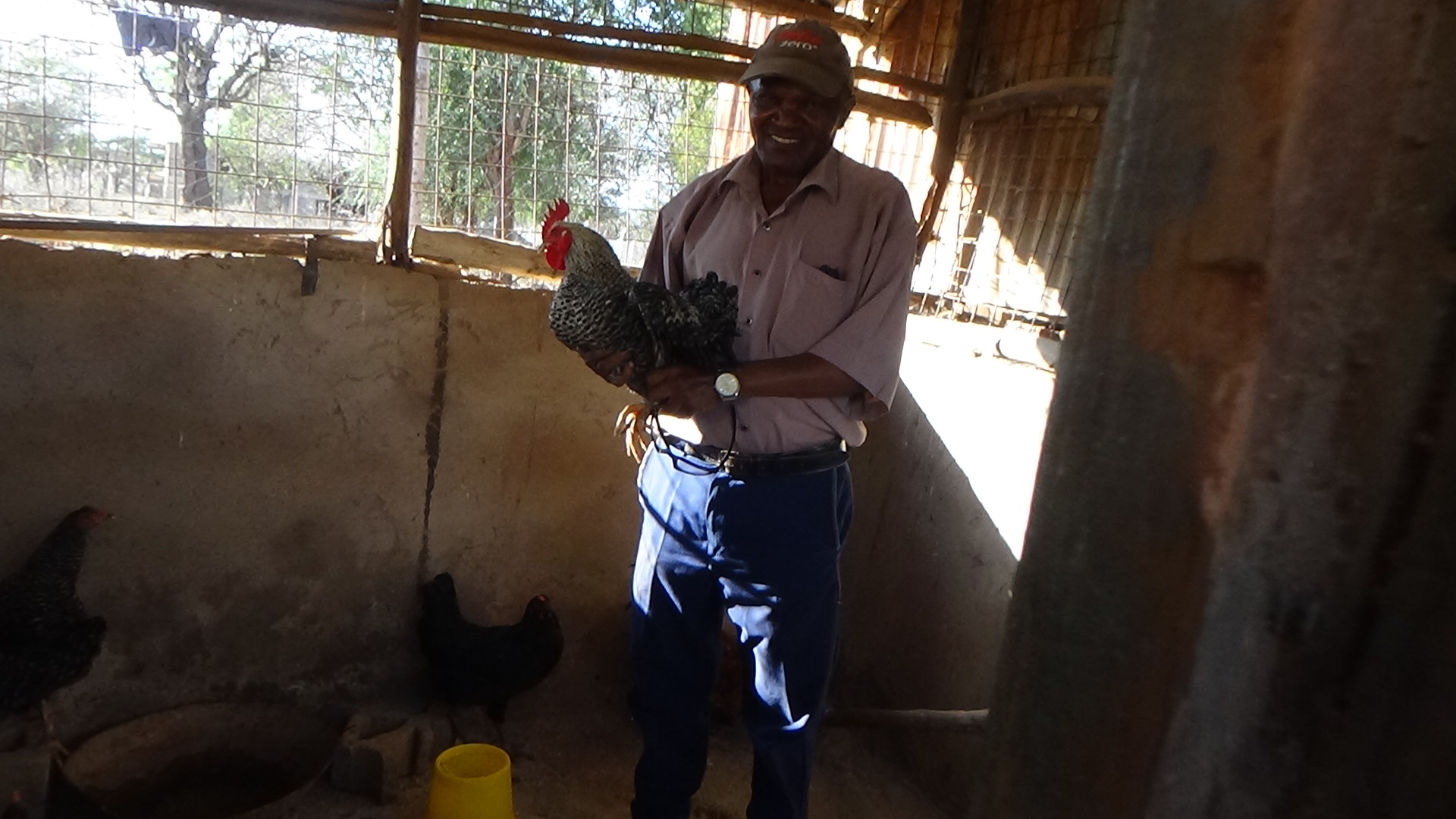
Mutua says that the women have also developed ways to efficiently gather and use household food waste to supplement other organic chicken feed. “Preventing the introduction of unnecessary antibiotics and the efficient use of household food waste reduces input costs and increases profits for farmers,” she says.
The KDC manager explains that the poultry value chain is a model of community-based livestock production based on environmentally sustainable methods. Its success means family farmers can resist the short-term economic incentives to become part of an industrial supply chain.
KDC was formed with assistance from World Neighbors, a global development organization based in Oklahoma City.
Ripple Effects
World Neighbors Chief Executive Officer Kate Schecter the Kitui poultry farming project has become a beacon of empowerment, radiating positive change across Kitui Central.
Kate Schecter continues, shedding light on the project’s profound impact on education and family planning. She articulates, “The transformation we witness goes beyond securing food; it’s about nourishing minds and shaping a future where every child has the opportunity to learn and grow.”
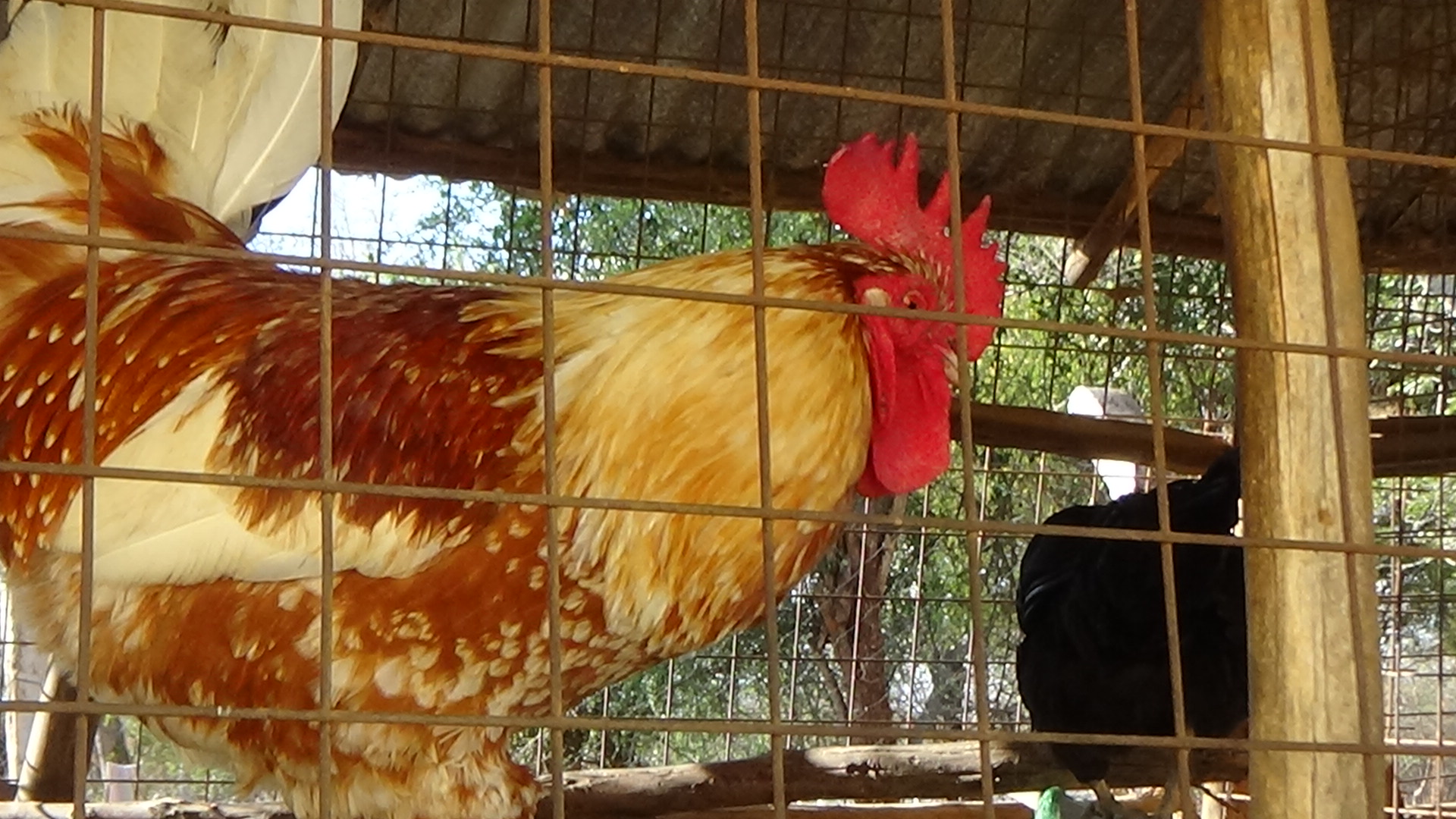
In her observations, Schecter highlights a shift in the community’s mindset, where education is now seen as a cornerstone for breaking the cycle of poverty. “Most families have been empowered,” she notes, “and there’s a growing awareness of the importance of sending their children to school. Through this project, education is no longer a distant dream but a tangible path towards a brighter future.”
“This shift not only contributes to the well-being of individual families but also sets the stage for a more sustainable and thriving community’’ she added.
According to Schecter, the Kitui poultry farming project acts as a catalyst for holistic community development. In this way, the project becomes a transformative force, breaking down barriers and nurturing a community where each member can aspire to a more secure, educated, and self-reliant way of life.
Through the Yike Wikwe sustainable poultry farming project, the Kitui central women have been able to initiate other projects like dairy farming and commercial pigeon peas farming to further enhance their economic standing.
Through proceeds obtained from the sale of chicken products, the group has been able to build a community warehouse for storage of their farm produce as they strategize to venture into commercial animal feed production.
“Going forward, our goal is to diversify and expand our sustainable farming practices to include more drought-resistant crops that can generate more revenue for members,’’ concludes Mutua.

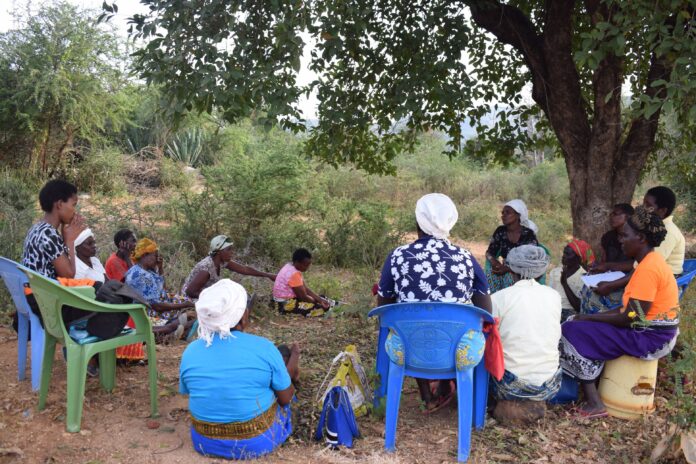

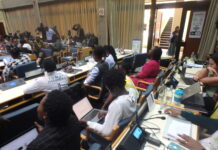
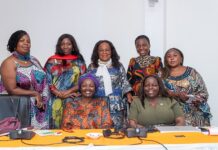











[…] article originally appeared on TalkAfrica.co.ke on January 9, […]
Comments are closed.